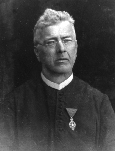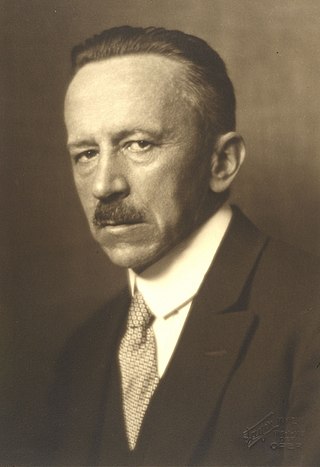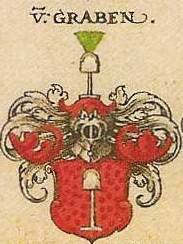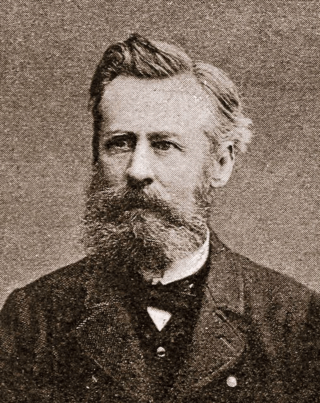
Admont Abbey is a Benedictine monastery located on the Enns River in the town of Admont, Austria. The oldest remaining monastery in Styria, Admont Abbey contains the largest monastic library in the world as well as a long-established scientific collection. It is known for its Baroque architecture, art, and manuscripts.

Gabriel Strobl was an Austrian Roman Catholic priest and entomologist who specialised in Diptera.

Matthias Joseph Anker was an Austrian mineralogist and geologist born in Graz. Some sources place his birthdate as 1 May 1772.

August von Hayek was an Austrian physician and botanist born in Vienna. He was the son of naturalist Gustav von Hayek and the father of economist Friedrich Hayek (1899–1992).
Richard Knabl was an Austrian parish priest and epigraphist who, though he lacked formal academic training as a historian, became a prominent contributor to our current knowledge of the Roman period in Noricum and western Pannonia, especially on the territory of modern Styria.

Andreas von Graben zu Sommeregg was a Carinthian knight and nobleman residing at Sommeregg Castle. He served as a burgrave and castellan governor in the Ortenburg estates, held by the Counts of Celje until 1456. With the extinction of the Cillier family, Von Graben lost the post of captain of the County of Ortenburg under the Habsburgs, their successors as Ortenburg sovereign.

Herren von Graben, also named von (dem) Graben, vom Graben, Grabner, Grabner zu Rosenburg, Graben zu Kornberg, Graben zu Sommeregg, Graben von (zum) Stein, and ab dem Graben was the name of an old (Uradel) Austrian noble family.

Frederick II von Graben, also called Frederick the Younger, was a Styrian noble, a member of the edelfrei Von Graben family. He held the titles as Lord of Kornberg and Marburg, the Lordship Marburg as well as burgrave of Riegersburg. One of the most affluent Styrian nobles, Frederick was an advisor to the Habsburg emperor Frederick III, where he held a special position, assessor at the Reichskammergericht, and member of the duchy's Landtag assembly.

Archduchess Catherine Renata of Austria was a member of the House of Habsburg.

Eleanor of Austria, was an Austrian archduchess and a member of the House of Habsburg.

Maximilian Ernest of Austria, was an Austrian prince member of the House of Habsburg and by birth Archduke of Austria.

Wolfgang von Graben, also Wolfgang de Groben and Wolfgang Grabenski was born in Kornberg castle, Styria and a member of the Austrian nobility. He held the titles as a Lord of Graben, Kornberg, the Lordship Marburg with Obermarburg and Maribor Castle, Radkersburg, Neudenstein, Weinberg and Viscount of Saldenhofen.

Ulrich III von Graben was a member of the Austrian nobility, Lord of Kornberg, (Ober)Radkersburg, Grabenhofen, Graben and the Lordship Marburg, Obermarburg and Maribor Castle.
Karl Schenkl was an Austrian classical philologist.
Hippolyt Tschapeck was an Austrian malacologist, known for his studies of mollusks native to Styria.

Franz Krones Ritter von Marchland was an Austrian historian.

Sigismund Anton Graf von Hohenwart, S.J. was from 1791 to 1794 Bishop of Trieste, from 1794 to 1803 Bishop of St. Pölten, and from 1803 to 1820 he was Prince-Archbishop of Vienna.

The Von Stadl family was the name of an Austrian noble family from Styria, which also belonged to the provincial nobility in Lower Austria. The lords of Stadl from the Kornberg line were raised to barons, a side branch to imperial counts styled as Reichsgraf von und zu Stadel-Kornberg. The male line of the family died out at the end of the 19th century.
Anton Schlossar was an Austrian librarian and writer, in particular writing about the Austrian state of Styria.















